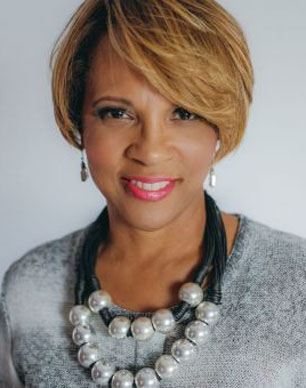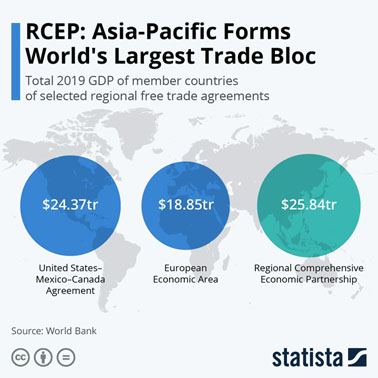Can “socialism” in Canada (er I mean “social democracy”) be any inspiration for Joe Biden’s USA today?
Nov 18th, 2020 | By Randall White | Category: Key Current Issues
FROM RANDALL WHITE, FERNWOOD PARK, TORONTO, WED 18 NOV 2020 : Sophia A. Nelson (who might qualify as one seasoned guide to the new political middle ground many Americans apparently now yearn for) published an interesting piece on the Daily Beast site this past Sunday.
Her article is called “The Authoritarian Threat in This Country Isn’t Socialism … Socialism reverberated like crazy in this election, but it was ironic that Trump supporters couldn’t recognize what a threat to democracy he posed.”
The delusional American right-wing view of “socialism” can seem especially eccentric if you live in Canada – and, like the majority of your fellow Canadians, almost always vote Democratic in American elections. Yet in reviewing my own favourite authors on the subject, I find that no less astute a political prophet than George Orwell put Americans and Canadians (and possibly even Mexicans?) together in the global picture.
As Orwell explained in his 1947 meditation on why socialism was only possible in Europe : “In North America the masses are contented with capitalism, and one cannot tell what turn they will take when capitalism begins to collapse … It may be that Europe is finished and that in the long run some better form of society will arise in India or China. But I believe that it is only in Europe, if anywhere, that democratic Socialism could be made a reality in short enough time …”
Socialism in North America and Canada

In her thoughts on conservative, Republican, and right-wing demonization of “socialism” in the 2020 US election Sophia Nelson points to a 2019 Daily Beast article by veteran journalist Jack Schwartz. It argues that socialism was a deeply rooted force in American political culture long before Bernie Sanders revived its secular gospel in the age of Donald Trump.
Schwartz’s still well-worth-reading historical article is called : “How Socialism Made America Great … As a nation, we seem to have forgotten the circumstances that turned rock-ribbed Americans into labor activists, social reformers, populists, and, yes, socialists.”

As George Orwell cannot of course be blamed for not noticing, Canada has its own variation on this North American socialist history. Its boldest strand starts with the formation of the Co-operative Commonwealth Federation (CCF) in Calgary, Alberta in 1932, followed by the new party’s adoption of the “Regina Manifesto” in Regina, Saskatchewan in 1933.
The next big moment in this Canadian political history was the election of Tommy Douglas’s CCF provincial government of Saskatchewan in 1944 (“the first socialist government in North America” in one old lexicon).
Douglas’s subsequent long regime would, among many other things, also become an incubator for the 1960s beginnings of today’s Canada-wide network of provincial public health care systems, funded in part by the federal government in exchange for adherence to Canada-wide standards of public administration, accessibility, comprehensiveness, universality, and portability.
New Democratic Party in Canada today
Tommy Douglas would remain Premier of Saskatchewan (aka Governor in US political language) until 1961, when he went on to become the first leader of the new federal New Democratic Party (NDP), 1960s successor to the Depression-era CCF.

Since 1961 there have been intermittent NDP provincial governments in all four western provinces of BC, Alberta, Saskatchewan, and Manitoba, and in Ontario and Nova Scotia back east. The federal party has never formed a government in Ottawa. But it has often played an important role in the Canadian House of Commons. It did unusually well in the Canadian election of 2011, and in opinion polls a few months before the 2015 election finally won by the Justin Trudeau Liberals. (In both cases under leaders with deep roots in Quebec.)
Canada’s New Democrats, federally and provincially, have had their ups and downs lately, like many others. But they have also been energized by the fresh North American interest in what are thought to be socialist solutions to current issues, among younger people faced by bleaker economic prospects than their parents and grandparents.
The Canadian federal NDP has been led since 2017 by Jagmeet Singh, known on Wikipedia as “the first Indo-Canadian to lead a major federal party in Canada.” He was also born in Scarborough, Ontario, in the old suburban east end of what is now the City of Toronto.
The New Democrats won only 24 seats in the 2019 federal election. But given 2019’s tricky party arithmetic, they have arguably had some serious influence on Justin Trudeau’s current Liberal minority government.
The great Canadian provincial NDP success story right now is John Horgan’s freshly minted BC majority government on Canada’s Pacific Coast. (See this site’s own counterweights editors’ October 24/25, 2020 report on “If BC NDP can win a stable majority government to manage COVID-19,what about the Liberals in Ottawa?” And more recently see The Tyee on “The Last Strokes of BC’s New Political Map Are Drawn … Final vote counts add two seats for an NDP representing fresh swaths of the province.”)
Social democracy not socialism please

Few well-trained Canadian New Democrats nowadays, I’m guessing, would officially use the word “socialist” to describe their party’s values. The preferred term for polite company in 2020 seems to be “social democratic.” But if you’ve been around long enough, I think, you can still hear the same old gospel.
Practically, to me at any rate, it all comes down to the role of government.
As Orwell also explained in 1947, the Socialism that appealed to him was (and still is) “bound up with liberty, equality, and internationalism.” What he called “democratic Socialism” shares some of the liberal suspicion of too much government authority. But it also believes that popular government is the only ultimate protection the citizen of the democracy has from the aggressive limitations on personal freedom placed by vast (and vastly over-compensated) private sector oligopolies, bred by the only rhetorically free market.
In my own old age I think I’m just as happy talking about democracy. (Though if anyone else wants to talk about socialism that’s fine too.) All I mean at any rate is getting the role of government right in the mixed economy – to promote material prosperity and human equality and freedom in what our Constitution Act, 1982 and Charter of Rights and Freedoms in Canada calls the “free and democratic society.”
Meanwhile, what about the pivot to Asia and Brad Bannon’s “big and bold” Democratic thought?
Getting the role of government right in the USA also has a lot to do with foreign policy. And I wonder whether Joe Biden will somehow be reviving Barack Obama’s “pivot to Asia”?
This wondering has been prompted by the mid-November 2020 news that : “Following years of negotiations, 15 countries formed the world’s largest trading bloc on Sunday. The Regional Comprehensive Economic Partnership (RCEP) is made up of the ten ASEAN states (i.e. Brunei, Cambodia, Indonesia, Laos, Malaysia, Myanmar, the Philippines, Singapore, Thailand, and Vietnam) as well as South Korea, China, Japan, Australia and New Zealand.”
The news goes on : “The pact, which is the result of intense negotiations that started in 2012, is seen as an extension of China’s influence in the region. While limited in scope, RCEP covers more people than any previous trade agreement, with China alone contributing 1.4 billion to the roughly 2.2 billion people united in the deal.”

To me again, Donald Trump’s USA has been asleep at the switch on all this – from the cancellation of the Trans-Pacific Partnership on … And I’m finally concluding with a key current quotation that I think covers both this and the broader debate about socialism today.
It comes from Brad Bannon, President of Bannon Communications Research, a Washington, DC- based political polling and consulting firm : “The progressive economic message – economic security for working families – is fundamentally sound. Medicare for All could have been the ingredient that would have added some much-needed spice to a bland Democratic menu. It would have addressed the inadequacy of the current health care system that has been badly exposed by the deadly pandemic … A poll conducted by the Kaiser Family Foundation last month indicated that most Americans including a majority of independents supported Medicare For All.”
Bannon goes on : “The problem is the failure of establishment Democrats to adopt bold economic proposals. Progressives are being beaten up by moderates for the centrist failure to go big and bold.” Whatever else, it seems to me, this is a point of view worth thinking about before rushing too foolishly close to the countervailing American Old South gospel touted by Moscow Mitch McConnell … .


